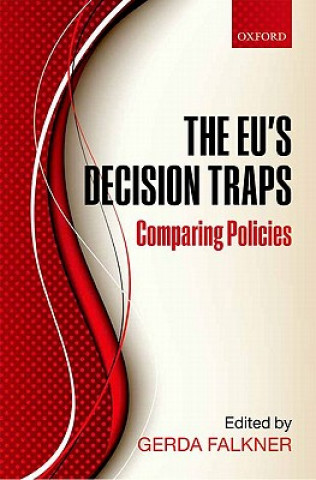
Doručení
Nákupní rádce





Nehodí se? Vůbec nevadí! U nás můžete do 30 dní vrátit
 Dárkový poukaz
V libovolné hodnotě
Dárkový poukaz
V libovolné hodnotě
S dárkovým poukazem nešlápnete vedle. Obdarovaný si za dárkový poukaz může vybrat cokoliv z naší nabídky.
EU's Decision Traps
 Angličtina
Angličtina
 410 b
410 b
30 dní na vrácení zboží
Mohlo by vás také zajímat


Fritz W. Scharpf's renowned model of the 'joint-decision trap' suggestes that the requirements of (nearly) unanimous decisions in the EU's Council of Ministers, combined with conflicting preferences among member governments, will systematically limit the problem-solving effectiveness of European policies. However, certain conditions have significantly changed in the 25 years since the theory was first posited. In particular, the unanimity rule has been replaced by qualified-majority voting in most issue areas, and successive rounds of enlargement have augmented the diversity of member state interests and preferences. This volume examines the continued relevance of the model. It presents a comparative study on the differential politics in EU policies. Looking at the political dynamics in an array of EU activities, it analyses breakthroughs as well as stalemates and asks why leaps occur in some areas whilst blockages characterise others. The dynamics that allow the EU to escape various forms of decision trap are analysed in-depth, including those suggested by 'rationalist' theorists (supranational-hierarchical steering, treaty-base games, and arena shifting) and those suggested by 'constructivist' approaches (socialisation). The volume concludes that when the EU is confronted with a high degree of problem pressure in a given issue area, these mechanisms will often not be available because most remain outside politicians' immediate grasp.
Informace o knize
 Angličtina
Angličtina




 Jak nakupovat
Jak nakupovat


































